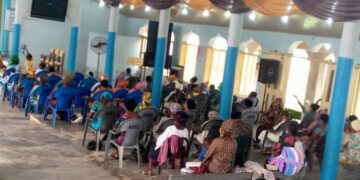Through the National Universities Commission (NUC), the federal government of Nigeria has instructed vice-chancellors to reopen schools and allow students to resume classes.
Sam Onazi, Director of Finance and Accounts for the NUC, issued the directive in a letter signed by Professor Abubakar Rasheed, the commission’s Executive Secretary.
The letter released on Monday was issued to all federal university vice-chancellors, pro-chancellors, and chairs of governing councils.
Part of the letter states, “Ensure that ASUU members immediately resume/commence lectures; Restore the everyday activities and routines of the various university campuses.”
The development comes days after Nigeria’s national industrial court ordered the Academic Staff Union of Universities to end its current nationwide strike on Wednesday.
Since February 14, ASUU has been on strike to advocate for more university funding and a reassessment of lecturer wages, among other demands.
Multiple discussions between ASUU and the Federal Government have reached an impasse.
Consequently, the federal government challenged the strike in court.
The government, through its attorney James Igwe, petitioned the court for an interlocutory order prohibiting ASUU from continuing the strike pending the outcome of the substantive complaint.
Wednesday, the lawyer for the Federal Government, James Igwe, asked the court to order the striking university professors to return to work until the outcome of the substantive case before the court.
As millions of kids have been at home for almost seven months, he said that the issue was not just urgent but also of immense national importance.
“Section 47 of the Trade Dispute Act, TDA, gives your lordship the authority to order that no worker continue a strike until the applications have been considered and decided,” said Igwe.
Igwe stated that the issue must be resolved quickly so that university students can return to class, adding that failing to end the strike will bring irreparable harm not just to the students but also to the nation.
Since the disagreement between FG and lectures was already before the court for resolution, he argued that it would be appropriate and in the interest of justice for the strike to be suspended.
In his judgement, Justice Hamman determined that the application was deserving of approval by the court.
While rejecting arguments filed by ASUU’s attorney, Mr. Femi Falana, SAN, the court determined that the strike action was damaging to students at public universities who cannot afford to attend private tertiary institutions.
“The balance of convenience favors the applicant.”
Justice Hamman ruled, “I hold that this application is meritorious, and this application is granted.”
The court then issued an injunction prohibiting ASUU, “whether by themselves, members, agents, privies, or by any other name,” from continuing the strike action awaiting the hearing and determination of the suit filed.
Since then, ASUU had filed fourteen grounds of appeal to contest the order.





























